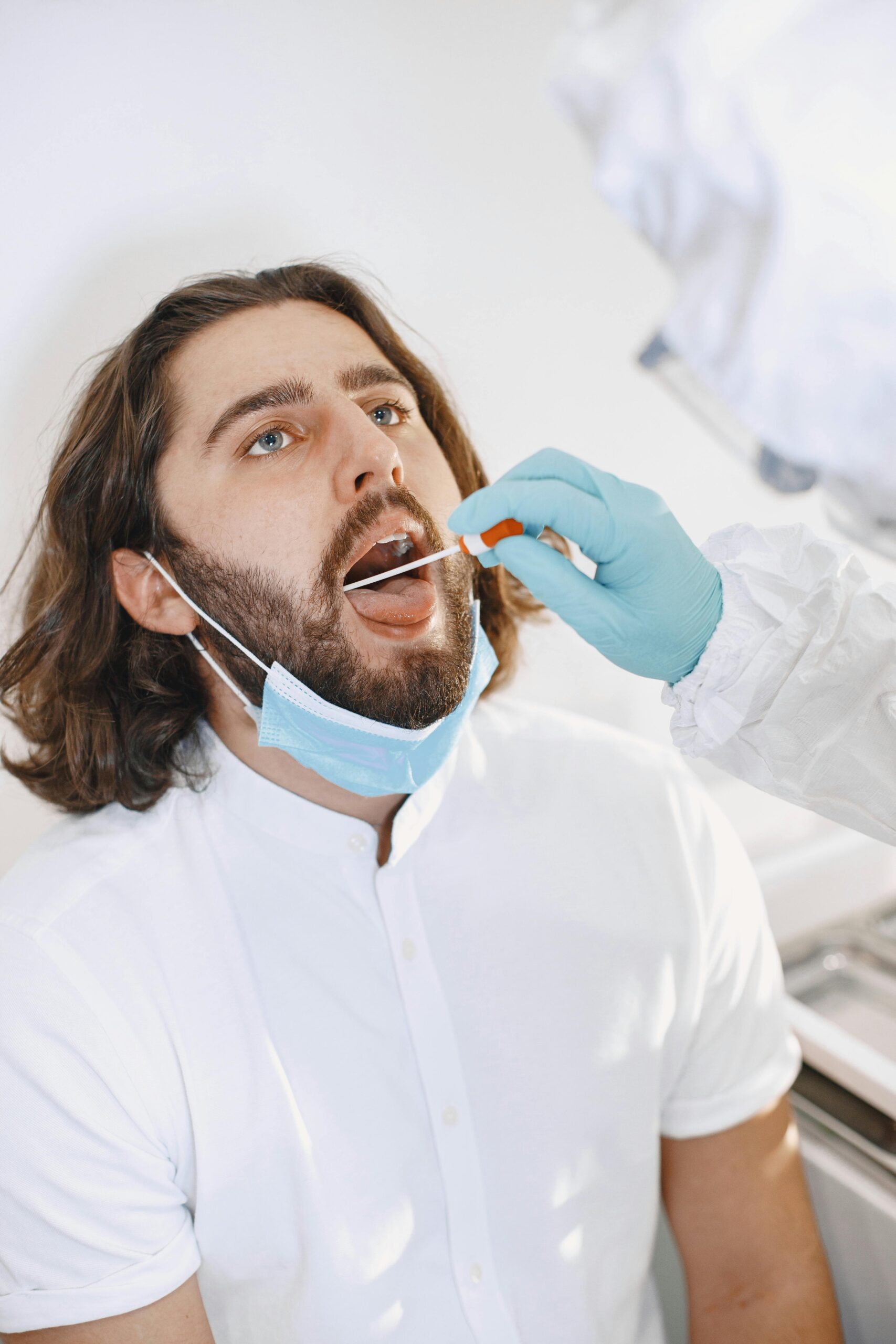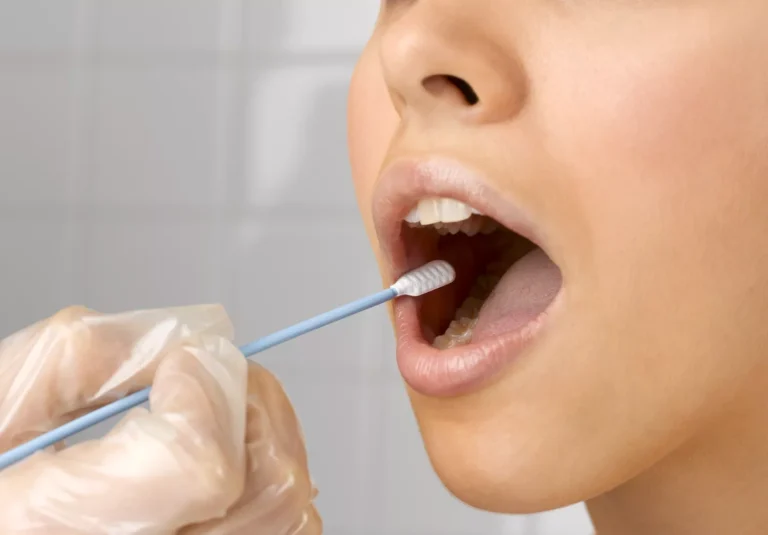
Facing a mouth swab drug test in 12 hours? This guide offers clear steps on how to pass mouth swab test in 12 hours. We’ll cover immediate actions, home remedies, and detox products to help you prepare effectively. Additionally, understanding the general strategies for passing various types of drug tests can provide you with a more comprehensive approach to tackling this challenge.
Key Takeaways
- Mouth swab tests detect recent drug use through saliva, focusing on metabolites that indicate substance presence within a short timeframe.
- Immediate actions like staying hydrated and practicing good oral hygiene can significantly improve your chances of passing a mouth swab test.
- Specialized detox products and natural remedies like hydrogen peroxide and lemon juice rinses can help cleanse your mouth before testing.
Table of Contents
Understanding Mouth Swab Drug Tests
Analyzing a sample of saliva allows a mouth swab drug test—also known as an oral swab drug test or a saliva drug test—to identify recent drug use. Popular for their non-invasive character and fast collecting technique, these tests are quite handy for the tester as well as the testee. Usually with a shorter detection window than urine drug tests and blood tests, mouth swabs concentrate on spotting drug use within a few days.
A mouth swab test serves primarily to find drug metabolites in your saliva. These metabolites are side effects of drugs that your body generates and stays in your system. The result you are hoping for is a negative test, meaning either none or less than a designated dosage of drugs are present in your system.
Knowing the procedure will help you to prepare for a mouth swab test and reduce the stress. Asking the test provider about the process ahead helps you to demystify the experience and help you to feel more comfortable. Remember, half the battle won is keeping cool under pressure and informed.
How Mouth Swab Drug Tests Work
Swabbing the inside of your cheek with a cotton swab or sponge gathers a saliva sample for a mouth swab drug test. This sample comes from the cheeks, under the tongue, and around the gum line among several parts of the mouth. Usually lasting one to two minutes, the whole collecting process is quick and effective for drug testing.
Once the saliva sample is gathered, it may be sent to a laboratory for additional study or tested right on-site with fast diagnostic test kits. The saliva sample is reacted upon by the reagents in the testing strips to show drug metabolites present.
Results, depending on the technique used, could show up in minutes or may take a few days should lab testing be ordered. Given their great accuracy—about 97.5%—mouth swab drug tests are a dependable tool for identifying continuous drug abuse.
Substances Detected by Mouth Swab Drug Tests
Among the several common drugs that mouth swabs can identify are amphetamines, cocaine, and marijuana. Different drugs have different detection windows; for example, alcohol can be detected for 12 to 24 hours while marijuana (THC) can be detected for up to 48 hours. Benzodiazepines can remain detectable for up to nine days; amphetamines might linger in your saliva for up to two days.
Other drugs including heroin and codeine have shorter detection windows; codeine is detectable for up to one day while heroin is detectable for roughly five hours.
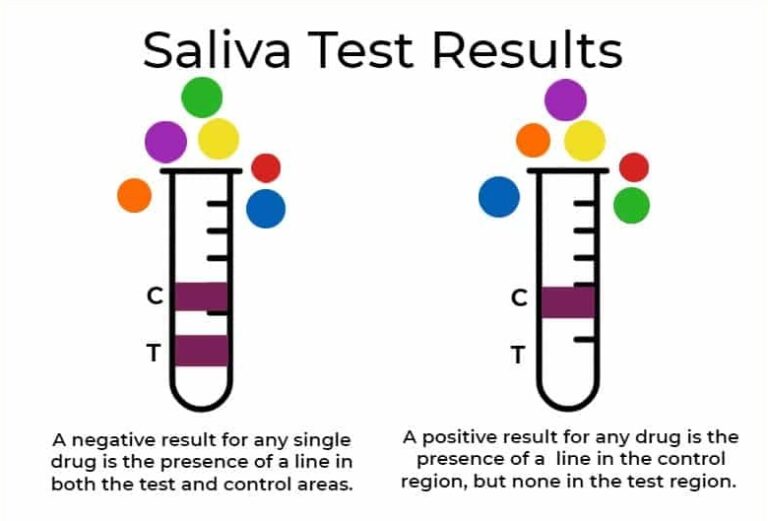
Useful Tips for a Mouth Swab Drug Test
Finding out you have a mouth swab test scheduled calls for quick response. Your chances of passing the test increase with early start of preparation. Your chances of a clean outcome will be much improved by keeping oral hygiene, drinking water, and applying some products. Remember, every small action you do can help lower the salivary drug metabolite concentration.
Though you should keep hydrated in the hours before the test, avoid eating or drinking anything right before. While chewing gum or mints can help to freshen your breath, be careful since they change the salivatory composition.
Getting ready not only raises your test passing probability but also confidence.
Hydration
Before a mouth swab drug test, you must be hydrated since it helps your mouth from drying out, which would produce erroneous findings. Drinking water reduces the concentration of THC metabolites in saliva and stimulates salivation, which helps your mouth to clear toxins.
Two hours before the test, one should sip lots of water. Your mouth will get cleaned from this. But steer clear of overhydration since it will cause needless attention during the test. Another useful approach for lowering identified drugs in your saliva is water rinsing of your mouth.
Oral Hygiene Practices
Keeping good oral hygiene will help to drastically lower drug residues in your mouth. Multiple times over the 12 hours before the oral drug test brushing, flossing, and using a strong mouthwash help remove drug residue.
Choosing an alcohol-free mouthwash helps one avoid false positives. To guarantee accurate findings, also avoid using mouthwash least half an hour before the test. Especially designed mouthwashes like Toxin Rid Rescue Wash can help to eliminate residual toxins.
Addiction Treatment in New Hamphire
Chewing Gum and Sour Candies
Chewing gum helps clear drug traces from your mouth and stimulates salivary flow. Before a mouth swab test, strong flavor gum free of sugar is advised, such as mint or cinnamon.
Because they increase saliva flow and lower pH levels in your mouth, sour candies are also quite beneficial. Combining sour candies and chewing gum can greatly increase saliva generation, so raising your chances of passing a mouth swab test.
Specialized Detox Products
Specialized detox products can improve your mouth swab test passing odds. Products such as Toxin Rid Rescue Wash and Stinger Detox Mouthwash are meant to rapidly and powerfully clean your mouth of toxins. Easy to use and a dependable component of your detox plan are these mouthwashes.
Your metabolic rate, the length of use, and how closely you follow the usage directions can all affect how well these products work. Let’s examine closely two well-known detox mouthwashes.
Toxin Rid Rescue Wash Mouthwash
Effectiveness of Toxin Rid Rescue Wash Mouthwash in suspending and destroying toxins from saliva is well known. Key components that combine to neutralize and cleanse toxins are magnesium, glycerin, witch hazel, aloe Vera, and ascorbic acid.
Priced at $29.95, it’s usually advised to help pass mouth swabs drug tests. Following directions will help you greatly increase your test passing chances.
Stinger Detox Mouthwash
Targeting drug residues to detoxify your saliva, Stinger Detox Mouthwash functions similarly to Toxin Rid Rescue Wash. Among its key components are sodium benzoate, citric acid, and sugar. Usually costing about $15, this mouthwash is used in saliva detox.
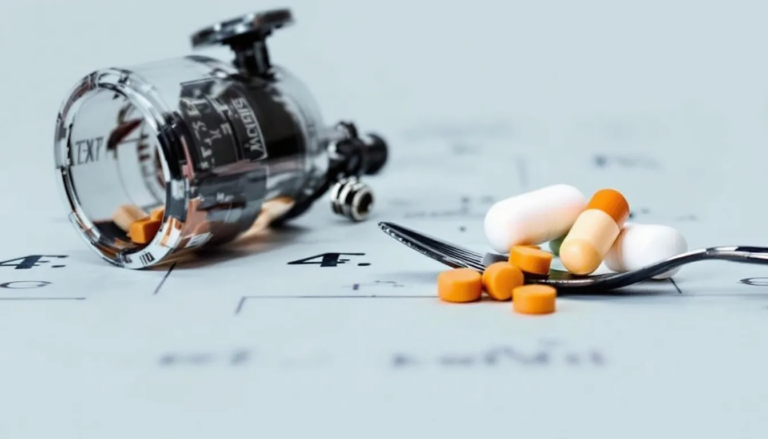
Advice for Taking a Drug Test
1. Develop a Plan
Work with your therapist or doctor to come up with a game plan.
A recovery plan can include medication-assisted treatment, therapy, and support groups. You may also ask for tips and strategies for coping with the cravings.
It’s best to learn about the possible treatment options for your circumstances for a higher chance of success.
2. Find Professional Help
See a specialist to get professional guidance on passing your drug test. A specialist can guide you across the detoxification process’s timing. Furthermore, depending on the kind of drug you use, you could need a doctor to control the withdrawal symptoms.
3. Find Professional Help
See a specialist to get professional guidance on passing your drug test. A specialist can guide you across the detoxification process’s timing. Furthermore, depending on the kind of drug you use, you could need a doctor to control the withdrawal symptoms.
Home remedies
1. Hydrogen Peroxide Rinse
Drug residue from your mouth can be cleared with a hydrogen peroxide rinse. It removes drug metabolites and bacteria so impeding the mouth swab test’s capacity to identify drugs.
2.Lemon Juice and Water Rinse
A lemon juice and water rinse helps to clear drug metabolites from the mouth and increase saliva generation, so helping to lower detectable levels. Before a drug test, using lemon juice as a mouthwash also naturally freshes your mouth and offers an extra advantage.
Stress Management Techniques
Doing well on the test depends on effective control of stress and anxiety. Deep breathing exercises encourage relaxation, so helping to reduce anxiety. Additionally helpful for lowering physical tension and offering mental diversion are methods like progressive muscle relaxation and visualization.
Gum chewing or conversation with someone can help even more to reduce anxiety.
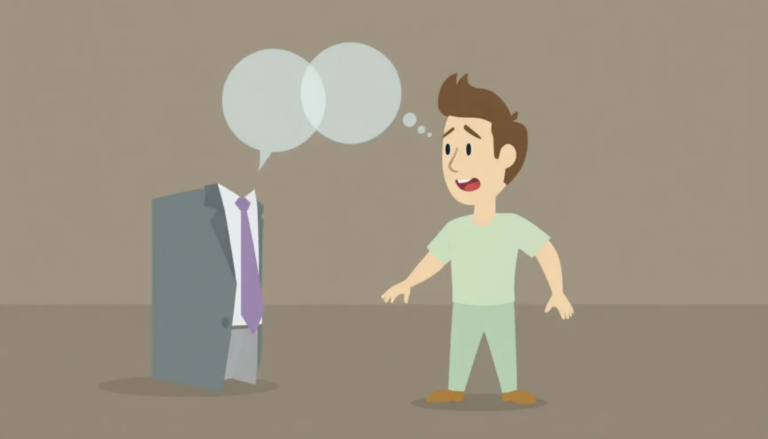
Detection Periods for Mouth Swab Drug Screening
1. Marijuana (THC)
Because it is lipid soluble, it holds onto the fat in your body for a longer period of time and binds to it. This characteristic makes THC detectable in urine testing several weeks after consumption. However, the effects of THC in saliva only last for a few hours.
2. Benzodiazepines
According to studies, the benzodiazepine alprazolam is only excreted in oral fluid for a period of two and a half days. On the other hand, clonazepam can remain in your saliva for up to five to six days, while diazepam can be there for seven to nine days. It is possible for this kind of medicine to have a prolonged detection period if it is consumed multiple times.
3.Amphetamines
It is possible to identify amphetamines by saliva testing procedures two days after the substance has been consumed, as stated by the AAA foundation. Methamphetamine, on the other hand, has the potential to last for three days.
4.Opioids and Opiates
As stated in the same research brief, the AAA Foundation states that the detection window for oxycodone in saliva ranges from 12 to 32 hours or more.
5.Barbiturates
Sedatives and medications designed to induce sleep are known as barbiturates. Saliva can be used to identify them 15 minutes after they have been consumed, and it can remain in the mouth for up to 52 hours!
6.Alcohol
The effects of alcohol are swiftly eliminated from our bodies. Within twelve to twenty-four hours of ingestion, the accuracy of the drug test begins to decrease.
7. Cocaine
Detection window: up to 24-48 hours after use.
8.MDMA (Ecstasy)
Detection window: up to 1-2 days.
What is the Likelihood of Getting a False Positive During a Mouth Swab Drug Screening?
Should a mouth swab test result be inconclusive, the test is neither positive nor negative, so producing uncertain results. Technical equipment problems, incorrect sample collecting, or inadequate drug metabolites in the sample can all lead to inconclusive findings. Should an inconclusive test result call for retaking the test, people should follow any given instructions to prevent complications. Generally speaking, laboratory techniques for mouth swabs drug tests are more sensitive and consistent than fast on-site tests to pass.Frequently Asked Questions
How effective are specialized detox mouthwashes?
Specialized detox mouthwashes, like Toxin Rid and Stinger Detox, can be pretty effective in clearing out toxins from your mouth quickly, which can help you pass a mouth swab test. Just make sure to use them as directed for the best results!What foods and drinks should I avoid before a mouth swab test?
You should steer clear of juice, alcohol, fatty foods, and acidic foods and drinks before your mouth swab test to ensure accurate results. It’s best to keep it simple and stick to water if you’re thirsty!Can natural home remedies help in passing a mouth swab test?
Absolutely, natural remedies like rinsing with hydrogen peroxide or lemon juice can potentially help reduce drug metabolites in your mouth. Just keep in mind that results can vary!How soon before the test should I use mouthwash?
It’s best to use mouthwash within an hour before the test, but avoid it at least 30 minutes prior to get accurate results.What should I do if my test results are inconclusive?
If your test results are inconclusive, just plan to retake the test and stick to any instructions given to get accurate results. It’s all about making sure you get the right answers!How likely is it to fail a Mouth Swab Drug Test?
Failing a mouth swab drug test is quite probable if you have recently consumed drugs. These tests are known for their high accuracy rates, often cited to be around 97%. Results are usually available within minutes, making them a popular choice for employers and law enforcement due to their convenience and speed.
Drug Rehab New Hampshire
Dr. Mitchell G. Cohen is a board-certified Internal Medicine specialist with over 34 years of experience in patient-centered healthcare. A graduate of Hahnemann University School of Medicine, Dr. Cohen completed his internship at the University Health Center of Pittsburgh, where he gained invaluable hands-on experience. He is also a certified addiction specialist, holding membership with the American Society of Addiction Medicine (ASAM).
Currently based in Nashua, NH, Dr. Cohen is affiliated with Saint Joseph Hospital, where he provides comprehensive care focusing on both internal medicine and addiction treatment. His expertise includes prevention, diagnosis, and management of adult diseases, as well as specialized care for individuals facing substance use disorders.
Dr. Cohen is committed to fostering open communication, ensuring his patients are fully informed and empowered to make confident decisions about their health and treatment options.

MD Mitchell Grant Cohen
Dr. Mitchell G. Cohen is a board-certified Internal Medicine specialist with over 34 years of experience in patient-centered healthcare. A graduate of Hahnemann University School of Medicine, Dr. Cohen completed his internship at the University Health Center of Pittsburgh, where he gained invaluable hands-on experience. He is also a certified addiction specialist, holding membership with the American Society of Addiction Medicine (ASAM).
Currently based in Nashua, NH, Dr. Cohen is affiliated with Saint Joseph Hospital, where he provides comprehensive care focusing on both internal medicine and addiction treatment. His expertise includes prevention, diagnosis, and management of adult diseases, as well as specialized care for individuals facing substance use disorders.
Dr. Cohen is committed to fostering open communication, ensuring his patients are fully informed and empowered to make confident decisions about their health and treatment options.
- MD Mitchell Grant Cohen
- MD Mitchell Grant Cohen
- MD Mitchell Grant Cohen
- MD Mitchell Grant Cohen
- MD Mitchell Grant Cohen
- MD Mitchell Grant Cohen
- MD Mitchell Grant Cohen
- MD Mitchell Grant Cohen
- MD Mitchell Grant Cohen
- MD Mitchell Grant Cohen
- MD Mitchell Grant Cohen
- MD Mitchell Grant Cohen
- MD Mitchell Grant Cohen
- MD Mitchell Grant Cohen
- MD Mitchell Grant Cohen
- MD Mitchell Grant Cohen
- MD Mitchell Grant Cohen
- MD Mitchell Grant Cohen
- MD Mitchell Grant Cohen
- MD Mitchell Grant Cohen
- MD Mitchell Grant Cohen
- MD Mitchell Grant Cohen
- MD Mitchell Grant Cohen
- MD Mitchell Grant Cohen
- MD Mitchell Grant Cohen
- MD Mitchell Grant Cohen
- MD Mitchell Grant Cohen
- MD Mitchell Grant Cohen
- MD Mitchell Grant Cohen
- MD Mitchell Grant Cohen
- MD Mitchell Grant Cohen
- MD Mitchell Grant Cohen
- MD Mitchell Grant Cohen
- MD Mitchell Grant Cohen
- MD Mitchell Grant Cohen
- MD Mitchell Grant Cohen
- MD Mitchell Grant Cohen
- MD Mitchell Grant Cohen
- MD Mitchell Grant Cohen
- MD Mitchell Grant Cohen
- MD Mitchell Grant Cohen
- MD Mitchell Grant Cohen
- MD Mitchell Grant Cohen
- MD Mitchell Grant Cohen
- MD Mitchell Grant Cohen
- MD Mitchell Grant Cohen
- MD Mitchell Grant Cohen
- MD Mitchell Grant Cohen
- MD Mitchell Grant Cohen
- MD Mitchell Grant Cohen
- MD Mitchell Grant Cohen
- MD Mitchell Grant Cohen
- MD Mitchell Grant Cohen
- MD Mitchell Grant Cohen
- MD Mitchell Grant Cohen
- MD Mitchell Grant Cohen
- MD Mitchell Grant Cohen
- MD Mitchell Grant Cohen
- MD Mitchell Grant Cohen
- MD Mitchell Grant Cohen
- MD Mitchell Grant Cohen
- MD Mitchell Grant Cohen
- MD Mitchell Grant Cohen
- MD Mitchell Grant Cohen
- MD Mitchell Grant Cohen
- MD Mitchell Grant Cohen
- MD Mitchell Grant Cohen
- MD Mitchell Grant Cohen
- MD Mitchell Grant Cohen
- MD Mitchell Grant Cohen
- MD Mitchell Grant Cohen
- MD Mitchell Grant Cohen
- MD Mitchell Grant Cohen
- MD Mitchell Grant Cohen
- MD Mitchell Grant Cohen
- MD Mitchell Grant Cohen
- MD Mitchell Grant Cohen
- MD Mitchell Grant Cohen
- MD Mitchell Grant Cohen
